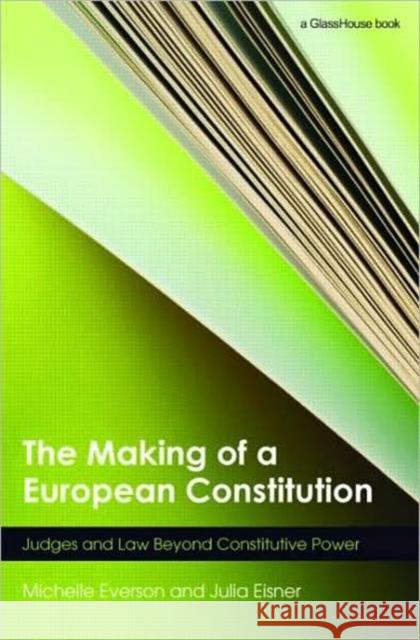The Making of a European Constitution: Judges and Law Beyond Constitutive Power » książka
The Making of a European Constitution: Judges and Law Beyond Constitutive Power
ISBN-13: 9780415439053 / Angielski / Twarda / 2007 / 256 str.
The Making of a European Constitution: Judges and Law Beyond Constitutive Power
ISBN-13: 9780415439053 / Angielski / Twarda / 2007 / 256 str.
(netto: 696,83 VAT: 5%)
Najniższa cena z 30 dni: 705,23
ok. 22 dni roboczych.
Darmowa dostawa!
An original and innovative recasting of constitutionalism, written by acknowledged experts in the field, this empirically grounded and theoretically informed volume addresses the strategies and philosophies that judges and lawyers bring to bear when creating European constitutional jurisprudence; investigating and promoting promotes the sustainability of a theory or praxis of 'procedural' constitutionalism. Building upon European and American critical legal scholarship, Michelle Everson and Julia Eisner argue that constitutional adjudication has never been the neutral matter of a mere judicial 'identification' of the values, norms and procedures that each society seeks to concretise in its own body of constitutional law. Instead, a 'mythology' of comprehensive national constitutional settlement has obscured the primary legal constitutional conundrum that is created by the requirement that a judiciary must always adapt its constitutional jurisprudence to the evolving values that are to be found within any society; but must always, also, maintain the integrity and autonomy of the law itself. European judges and lawyers, having been denied recourse to all forms of constitutional mythology, provide us with an alternative model of constitutionalism; one that does not require a founding myth of constitutional settlement, and one which both secures the autonomy of law, as well as ensures dialogue between law and society. This occurs, however, not through grand theories of 'constitutional adjudication' but, as The Making of a European Constitution documents, rather through a practical process.











